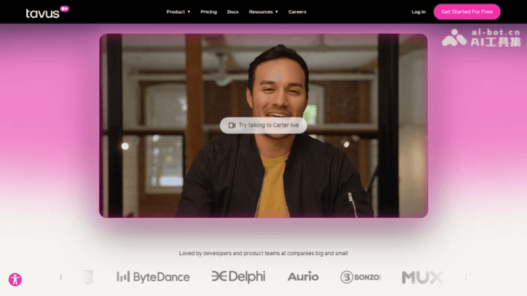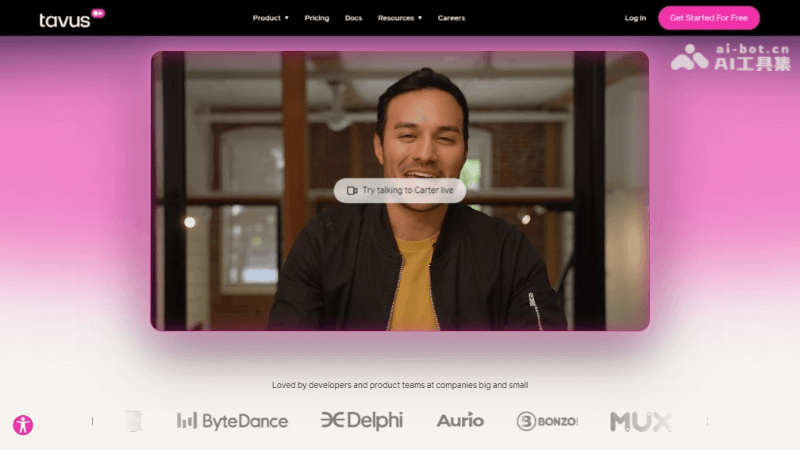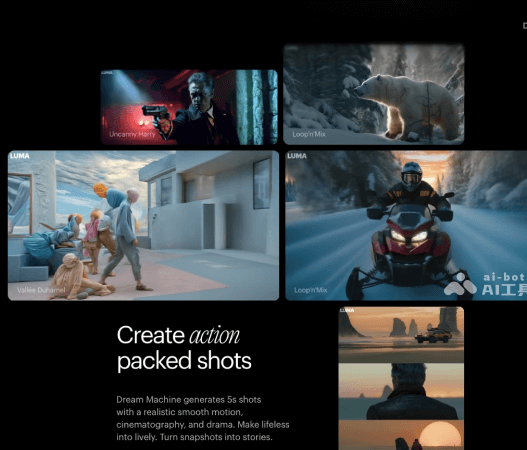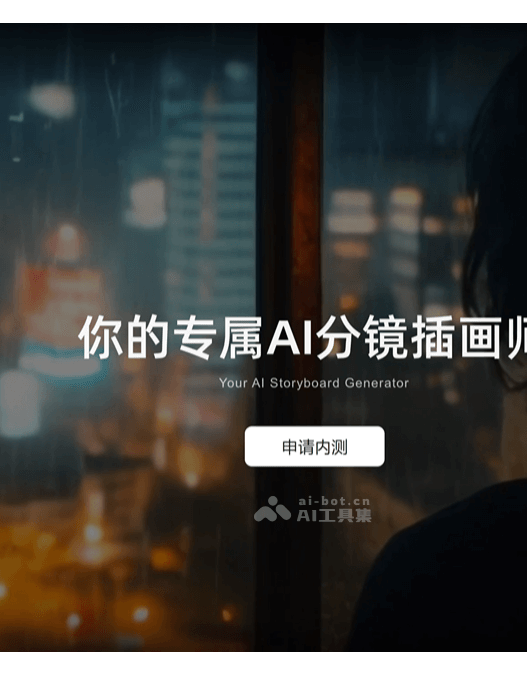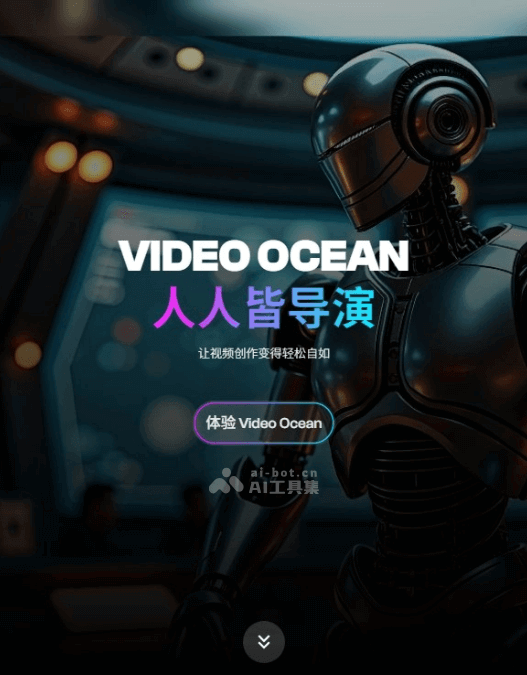What is Tavus
Tavus is advanced personalizationAI video generation platformenabling the creation of highly realisticdigital human cloningChat with AI video in real time. Based on the advanced Phoenix-2 model and Conversational Video Interface (CVI), Tavus can achieve near-human natural interaction and real-time dialogue. The platform provides APIs and developer tools so that companies can quickly deploy AI video products in marketing, education, customer service and other scenarios. Tavus not only improves the user experience but also ensures the safe and compliant use of digital clones.
Main functions of Tavus
- AI video generation: Tavus’ video generation supports generating videos from scripts through AI digital cloning. Create content quickly without actually recording the video.
- Live conversational video: Tavus’ Conversational Video Interface (CVI) provides a new way to interact, allowing digital clones to talk to users in real time, with less than a second of latency.
- AI model: One of Tavus’ core technologies is its Phoenix-2 model, which generates incredibly realistic digital clones from short video clips of users. Not only do the clones look authentic, they can also mimic the user’s voice and facial expressions, providing a highly personalized video experience for a variety of applications.
- Developer documentation and tools: Tavus provides comprehensive developer documentation and tools to help developers register accounts, obtain API keys, and use the developer portal to try and integrate digital clones. These resources allow developers to easily integrate Tavus’ AI video technology into their applications and accelerate the product development process.
Tavus project address
Technical principles of Tavus
- Phoenix-2 model: It is a self-developed model by Tavus, which combines 3D models and 2D generative adversarial networks (GANs) to generate realistic short videos of 1-2 minutes.
- real-time conversation processing: Tavus’ Conversational Video Interface (CVI) allows digital clones to conduct real-time conversations with extremely low latency (less than a second). This involves advanced speech recognition, visual processing and conversational awareness to enable rich, natural conversational experiences.
- natural interaction: Tavus’ system is engineered with features for natural interaction, including conversational large language models (LLM), visual recognition, end-of-turn detection, and interruptibility, so conversations with digital clones feel real.
- Modular construction: Tavus provides a modular construction method, allowing developers to integrate custom language models or text-to-speech (TTS) systems according to their own needs and use cases.
- Easy to deploy solution: Tavus provides pre-built WebRTC solutions so developers can quickly launch and deploy digital clone meetings.

How to use Tavus
- Register and obtain API Key: Visit TavusOfficial websiteBy registering an account, developers can obtain an API Key.
- Create Replica: Use the built-in camera to record video or upload existing video material through the developer portal to create a Replica, a digital twin. Make sure the video complies with Tavus’ recording guidelines, such as maintaining eye contact, appropriate gestures, a positive tone of voice, and reading an authorization statement in the video.
- write code: Using Python and the Tavus API, you can quickly start a conversation. First you need to install
requestsandpython-dotenvpackage, and then use the API Key to initiate a POST request to Tavus’s API endpoint. Need to prepare a package containingreplica_id、conversation_name、conversational_contextas well aspropertiespayload with other parameters. - Customize and train Replica: Train your Replica according to your brand style and voice. You can provide custom variables to adjust its tone, style, and behavior to ensure it reflects your brand image.
- Generate video: Replica setup is complete, just provide text script. Tavus’ AI will take over and generate personalized videos based on the context of the interaction.
- Clone a real person or choose an existing image: You can clone real people to create highly realistic Replica, or choose from images provided by Tavus.
Application scenarios of Tavus
- customer service: Enterprises can use Tavus to enhance customer service experience, provide instant and personalized services through AI video conversations, and improve customer satisfaction.
- personalized marketing: Marketers can use Tavus’ technology to create highly personalized videos, customized according to audience preferences, to enhance marketing effectiveness.
- virtual assistant: Tavus can be used as a virtual assistant to participate in daily conversations, such as ZOOM video conferences, etc., providing real-time communication and information sharing.
- Education and training: In the field of education, Tavus can serve as a digital twin of teachers or trainers, providing personalized learning experiences and training content.
- Product demonstrations and introductions: Enterprises can use Tavus to generate product demonstration videos and introduce product features and advantages to potential customers through lifelike AI images.




